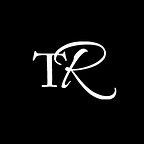What Does My Hijab Mean To You?
What do you see? What do you feel when you cross by me? The glimpse of the cloth covering a woman’s face, she must me Muslim, isn’t she?
What do you do? Do you think I’m oppressed by my culture, my religion and I was forced to wear some hideous outfit that only fulfills the wishes of Muslim men? Do you go to the one beside you and say, “She must be suffering.”
Are you afraid?
Don’t tell me I’m wrong. Some of you are good people, but there’s still this lingering feeling you can’t just point out. You have this notion that since we are different, most especially, since popular terrorists are Islam, that I am a threat to you. My hijab is a threat to you.
My hijab is also a sign that I have offended you. I used to ask my oppressors this why but they simply could not give a straight answer. It’s just another threat as their response or phrases along the lines of, “If you don’t take that off, I’m going to call the police.”
Well, aside from the real oppression most Muslim women experience back home, we also have our own battles in our own foreign community, especially in America. Most of the time, we are told to hide.
But we can’t really do that, can we? Why? Because our hijab is all that you can see. You can’t see the girl or the woman behind it. You won’t bother to know or to ask what we do. Why ask if you already know that my only purpose in life is the please the men in our society and culture and to become a good ‘ol housewife, am I right?
I am.
And this is where the problem lies.
Award-winning author, activist and cultural commentator Samima Ali spoke about Muslim and hijab. She said that there is no specific instructions on the Quran that tells Muslim women to cover their whole body. Clerics, who were driven by their own agenda, started to add to the original context of the Quran to explicitly tell women how to dress.
However, Ali disagrees. 1400 years ago, when the Prophet Muhammed was faced with a societal conundrum of women being assaulted at night, he spoke to Allah to seek wisdom. At the time, a jilbab is a woman’s pride wear. Just like what Ali said, it’s a status symbol, much like “a Burberry trench or a Chanel jacket.” It shows that the woman wearing it is protected by her clan. So, criminals knew that they should stay away. On the other hand, women without the jilbab became easy preys because they were slaves.
Muhammed was then faced with the conflict. In the Quran, he was given an order from Allah to protect all women by making them all wear the jilbab, but since it was a status symbol for the elite, it felt like an insult. The leaders then decided that it will need to be in accordance to a woman’s function in society as well as her role in the community.
Ali added that now, in our modern times, if the original Quran was to be followed, the hijab is not a necessary protection for women because men who assault women in the streets are different now than before. In the olden times, men would hide their faces in fear of being prosecuted. Now, they even post it on YouTube to show how “cool” they are.
But, that was the history of hijab. I know there are misconceptions birthed by extremist clerics whom you can equate as modern day misogynists, but for me my hijab is something different.
My hijab is something that I’m proud of. It tells me I’m not Islam, rather, I’m a Muslim who is simply trying to follow Islam. It tells me that I am beautiful, validated and valued. It shows that I can defy adversity and be true to my values.
My hijab brings me closer to Allah.
It is the same as wearing your cross or not eating beef. It’s my way to connect with my Lord.
I have hope in people as I have in Allah. You do not have to believe in what I believe in, but there’s one thing I learned from the Quran and that is to treat people with kindness. Just like any other oppression, the perception of women in hijab may have a long ways to go, but I want to start here and start now.
There’s no other way to open up people’s mind than to start this conversation. I know there are Muslim women who suffer for not having choices and their own freedom, but there is a bigger percentage of modern Muslim women who embrace their own beauty while wearing hijab.
So, the next time you see one of us, start by letting go that feeling of being scared. I’m not the terrorist. I’m not the enemy. I’m just a human being trying to follow the God I believe in.
THE REOVLUZIONNE: THROUGH THE LENSES
Get more interesting stories straight to your inbox by subscribing below!
Know how you can also join our program where we develop progressive world leaders by clicking on the link below!
